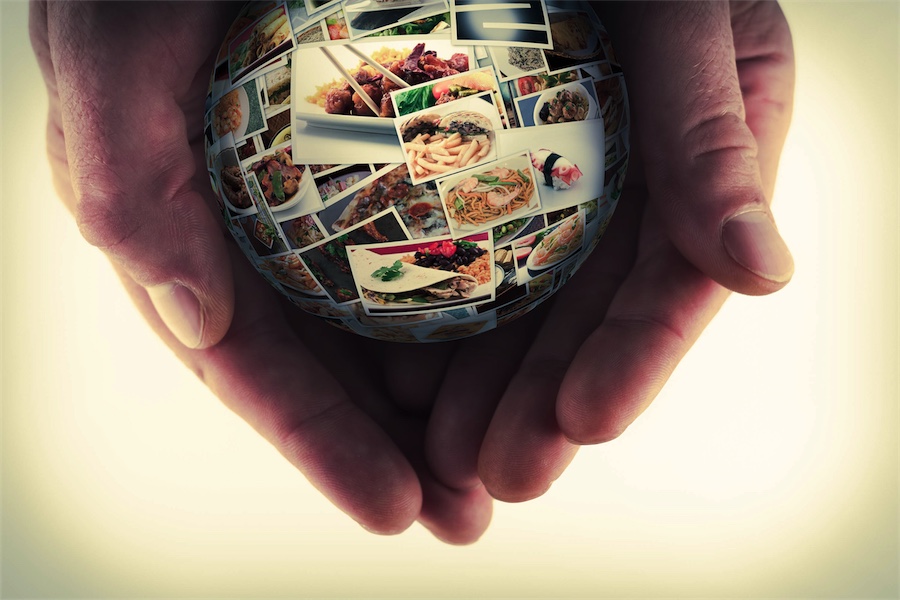Question: How should I eat to be healthy?
Answer: You should get 20% of your calories from protein, 35% from fats and 40% from carbohydrates (or insert another ratio that supports your particular food philosophy).
Huh?
What does this even mean to the average person? When did food become about data and ratios? Most people don’t look at breaking down their food into macronutrients let alone specific vitamin and minerals. When did you start needing a degree in nutrition or dietetics just to know how to eat? You just want to eat tasty food that keeps you healthy…. Does it need to be this complex?
Humans have been eating food for a very long time. Hey, we’ve been eating it for, like, our whole history. We are here. We have survived. We have eaten vastly different types of food depending on our geographical location. Let’s face it; coconut oil was pretty hard to come by if you were living in Greenland or Alaska in times gone by.
Over analysis of healthy eating?
It’s only in the last 50 or so years, with what author Michael Pollan describes as ‘nutritionism,’ that we have begun to analyze the very substance that sustains us. But have we lost sight of the forest while looking in detail at a few trees?
Don’t get me wrong. I support research, knowledge, and discovery but nutritional science is challenging. Food is complex. Plants have thousands of phytochemicals and elements. We have even identified some of them yet. Taking a particular nutrient or whole food and studying that is fraught with challenges. What if Vitamin C is beneficial not just as an isolated nutrient but because of some other elements in the plants? What if these are required for it to be used effectively by the body? Is coconut oil healthy as a component of a traditional Pacific Island diet that also includes lots of vegetables, seafood, and plenty of exercise? Context is crucial here.
More than just food
The eating patterns of populations in the “Blue Zones” have been extensively studied to try and determine what makes them associated with a low risk of chronic disease. These diets are all pretty healthy in themselves, but we are learning that the health and well-being of these populations are down to more than just the food. It also is about the lifestyle, exercise, community, and spirituality.
Many elements combine to give good health. On the one hand, it’s complex, on the other, it’s pretty simple. We have been doing it for thousands of years. Sometimes I wonder if we are overthinking this nutrition thing and creating unnecessary stress for ourselves. In a world of slick marketing campaigns for the latest fad diet, the ability to hear and trust the wisdom of our body can be a challenge. Be cautious of anyone who tells you his or her way of eating is the only way or eating X will cure Y.
When it comes to a diet, there are many healthy eating patterns that you can follow including Mediterranean, Paleo, Vegetarian to name just a few. The key is to find one that nourishes you, and it may be a combination and change according to where you are in your life.
My advice for healthy eating
So what general advice do I give as a Naturopath when people ask me what they should eat to be healthy?
Again I like to refer to Michael Pollen:
Eat real food, mostly plants, not too much.
Yes, you do have to eat those veggies, and I’m not just referring to mashed potato here! Most of us also eat a little more than we should so be mindful of your portions to maintain a healthy weight.
In addition, I would add.
- Buy the best food you can afford, in seasonal to ensure a higher nutrient value.
- Prioritise your budget on healthy food. Everyday food choices can either build or destroy your health, so it’s worth not scrimping here. You don’t have to buy the latest “superfood.” Plenty of fruits, vegetables, and good quality meats is an excellent start.
- Learn how to cook and prepare your own food. That way you have control of what goes in and your portion sizes. Research has shown that people who cook their meals find it easier to maintain a healthy weight.
Finally, we humans are social creatures. Taking time to eat and savour your food is essential both for proper digestion but also creating a sense of community and connection. Food is not merely just fuel, but rather it nourishes the body, mind, and soul. Here’s to healthy eating on all levels!

Need help with your diet?
Norelle Hentschel is an experienced Naturopath with a clinic in Stones Corner, Brisbane who enjoys supporting her clients to reach their health goals.
Want more articles like this?
Receive a monthly digest of natural health information to help you become “health” sufficient!
PS. Your inbox real estate is precious, and we will never annoy you with sales pitches or share your details with anyone else. One email a month — that’s it.

